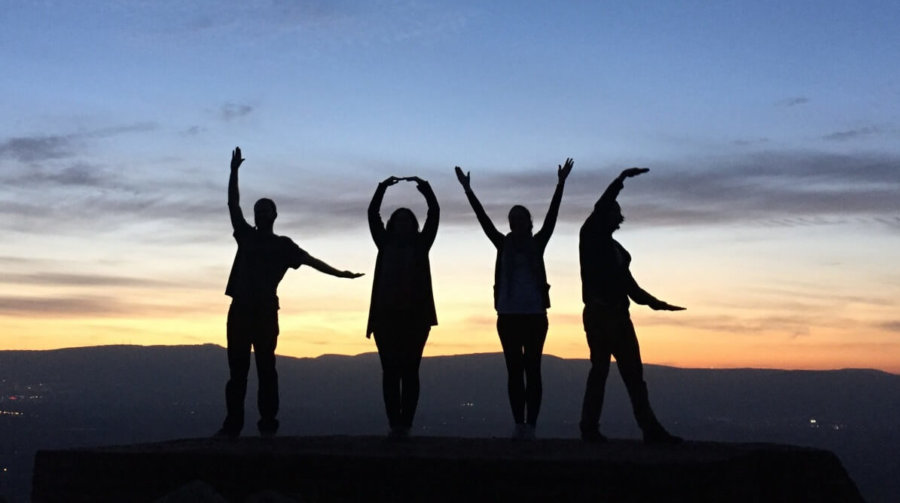Challenge
In 2014, Honeymoon Israel (HMI) engaged Rosov Consulting (RC) as an evaluation partner as they worked to design immersive trips to Israel for young couples, with the goal of building families and communities that are meaningfully connected to Jewish life. In the first year HMI wanted to fine-tune its trip participant application and selection process. The HMI leadership also wanted to understand how couples were experiencing different aspects of the trip and, in subsequent years, what happened to these couples when they returned to their home community. Did they continue to get together with the couples from their cohort? Did they connect to local Jewish life in their town in new or different ways? Were they exploring or experimenting with Jewish life at home in ways that worked for them?
Approach
Before any trips took place, Rosov Consulting reviewed initial participant applications to help develop a rubric for applicant selection. Our team then went on to further support, document, and evaluate the program’s early development and impact on participants. RC and HMI developed a close working relationship and an understanding that couples would need to be surveyed and interviewed at different stages post-trip to understand patterns. We surveyed couples on trips from December 2015 through May 2017, fielding pre-trip surveys to participants two weeks before the trips, and post-trip surveys to those same participants three months after returning home. Questions asked garnered information about the couples’ current stage in life, what they hoped to experience on the trip, and how they experienced and felt about Jewish life in their community both before and after the trip, among other areas. We also surveyed a comparison group of couples — those who applied and were eligible to participate but have not yet participated. In this way, we were able to ascertain the extent to which there really is a “trip effect” for couples who do participate. Finally, we interviewed couples at 6 and 9 months after their trips.
Results

Many recurring themes emerged. These themes, shared below, have informed such program components as HMI’s selection of staff for the trip, the composition of trip participants —particularly the balance of interfaith and Jewish-Jewish couples — and the post-trip community development model. Importantly, with our comparison group data, we have been able to observe pronounced differences between HMI couples and their peers — especially when comparing interfaith couples in the two samples.
- From “Me” to “We”: Whereas before the trip most couples reported that one partner was more likely to initiate conversation about doing Jewish things (like having a Shabbat dinner, or attending a Jewish sponsored event), after the trip this dynamic shifts noticeably. Particularly for interfaith couples, these conversations become more collaborative with the non-Jewish partner feeling more comfortable taking an active role, a shared ownership of Jewish life at home.
- From “Avoidance” to “Discussion”: Three months after the HMI experience, nearly all the couples who reported that they previously avoided discussing their religious and cultural differences now prefer to discuss their religious differences because “it makes our relationship stronger.”
- From “Outsider” to “Player”: One of the first things HMI participants are told is that they are all part of the Jewish family. This is a powerful message that continues to influence how participants feel three months after the trip. The percentage of couples who say they feel “included” goes up and the percentage who feel alienated drops to almost nil.
- From “Yours & Mine” to “Ours”: Most couples seek out the HMI experience because they are interested in connecting with other couples and expanding their community. The overwhelming majority report that the trip has in fact, given them a new circle of friends. For those who are more geographically distant from their nuclear family, holidays and life cycle events are now more meaningful because they can be shared with their HMI family.
- From “Honeymoon” to “Goodnight Moon”: Among the HMI couples who do have children or who are starting to have children, there are some micro-communities developing: a ‘new mom’ group, child-friendly outings, holiday get-togethers and, where possible, play-dates. For all couples, there is a noticeable increase in discussions about and religious education for their children.
Our preliminary work to follow couples through their first year-and-a-half post trip points to the staying power of HMI friendships. Provocative questions to follow over the long-term include: Within their homes, what does Jewish life look like over time? Are there ripple effects from their homes into their extended families? If/when they have children, in what ways do couples’ educational and child-care choices reflect values and priorities they express following their return from the program? To what extent does the HMI community serve as a Jewish community for these couples? In what ways do different local Jewish communal contexts have impact on these couples’ Jewish engagement?


